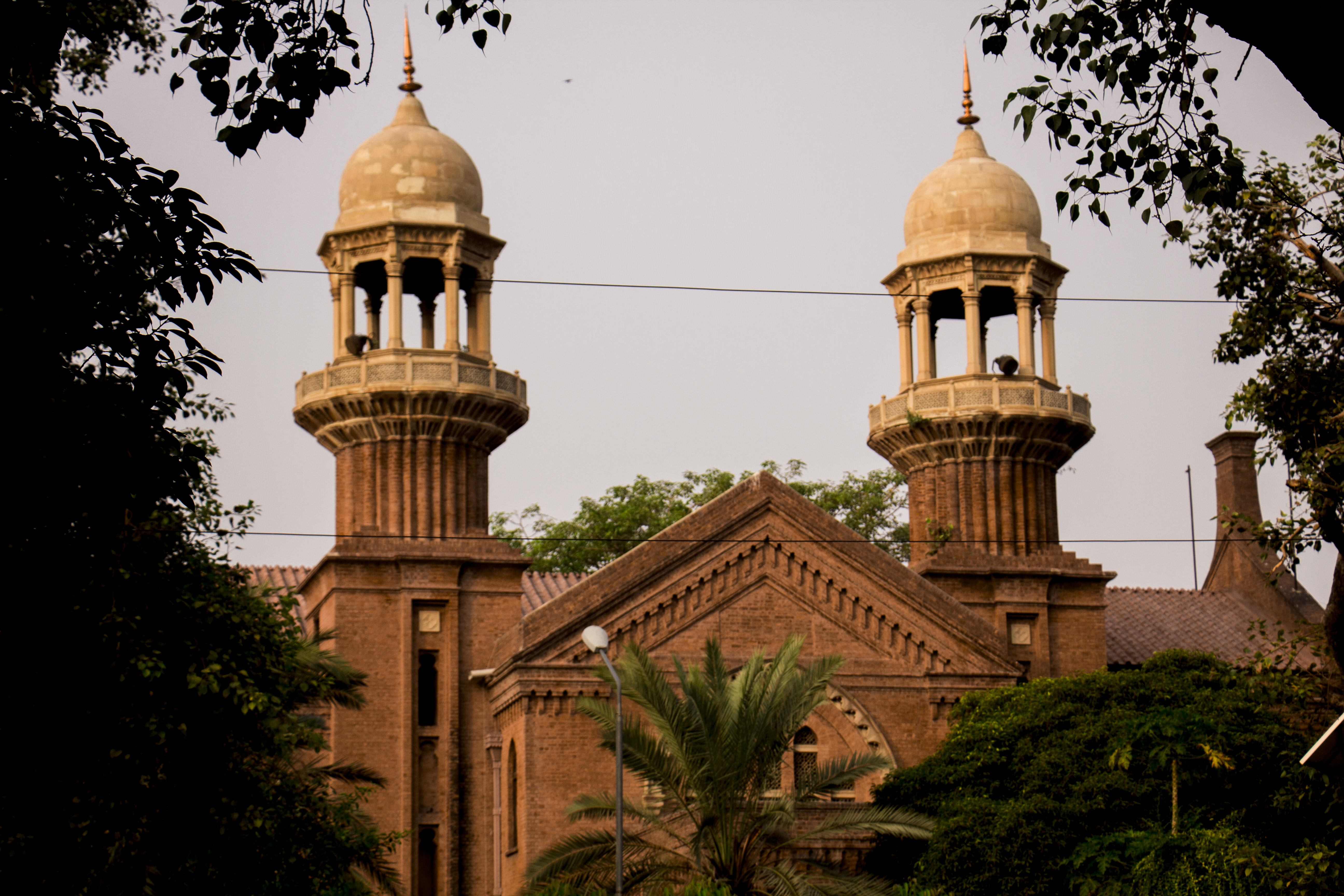|
Ali Zia Bajwa
Ali Zia Bajwa (, born 1 July 1973), serves as a Pakistani jurist and has held the position of Justice at the Lahore High Court since 7 May 2021. Career Bajwa assumed the role of additional justice at Lahore High Court (LHC) on 7 May 2021. The confirmation of his appointment as a permanent judge of LHC came from the Judicial Commission of Pakistan, headed by then Chief Justice of Pakistan Umar Ata Bandial, on 13 October 2022. He officially took the oath of office as a permanent judge of LHC on 4 November 2022. Cases On 24 December 2021, Bajwa issued a significant ruling in the case Ameer Bakhsh v. Additional Sessions Judge. This decision established that a woman who remarries without observing the Iddah after Khul' cannot face prosecution under Section 4 of the Hudud Ordinances. He determined that such a remarriage, without adhering to the Iddah period, does not render the marriage void and, consequently, cannot be considered an offence of Zina ''Zināʾ'' () or ''zinā'' ... [...More Info...] [...Related Items...] OR: [Wikipedia] [Google] [Baidu] |
Lahore High Court
The Lahore High Court () is a provincial court house based in Lahore, Punjab, Pakistan. It was established as a high court on 21 March 1882. The Lahore High Court has jurisdiction over the province of Punjab. The High Court's principal seat is in Lahore, but there are benches in three other cities of the province: Rawalpindi, Multan and Bahawalpur. A proposal was sent by lawyers to set up new high court benches in Faisalabad, Sialkot, D.G.Khan and Gujranwala divisions but full court of Lahore High Court turned down this request. History Creation In 1849, the East India Company defeated the Sikh Empire and assumed control of administration within the Punjab. A Board of Administration was constituted and the Punjab was divided into Divisions, Districts and Tehsils. The Divisions were controlled by Commissioners, Districts by Deputy Commissioners and Tehsils by an Assistant and Extra Assistant Commissioners. The Board of Administration consisted of Sir Henry Lawrence, Joh ... [...More Info...] [...Related Items...] OR: [Wikipedia] [Google] [Baidu] |
Anwaar Hussain
Anwaar Hussain (, born 16 January 1973) is a Pakistani jurist who has been Justice of the Lahore High Court since 7 May 2021. Education Hussain earned his law degree from Punjab University Law College, achieving University Distinctions in all three parts. He later pursued a master's degree in Political Science, securing the fifth position overall. Additionally, he obtained postgraduate diplomas in labor and intellectual property laws, securing first position in both courses. His career includes a 14-year standing at the Bar, an LLM from the Institute of Comparative Law (McGill University). Career Hussain enrolled as advocate lower courts on 1 February 1999. He started practice as advocate high court on 31 March 2001. He also worked as a Legal Draftsman at the Law Parliamentary Affairs and Human Rights Department. During this time, he played a key role in drafting significant legislation, such as the Punjab Rented Premises Act, 2009. His contributions also extend to research ... [...More Info...] [...Related Items...] OR: [Wikipedia] [Google] [Baidu] |
Demography Of Pakistan
Pakistan had a population of 241,499,431 according to the final results of the 2023 census. This figure includes the country's four provinces e.g. Punjab, Sindh, Khyber Pakhtunkhwa, Balochistan and the Islamabad Capital Territory. Azad Kashmir and Gilgit-Baltistan's census data is yet to be approved by CCI Council of Pakistan. Pakistan is the world's fifth–most populous country. Between 1951 and 2023, Pakistan's population expanded over sevenfold, going from 33.7 million to 241.5 million. The country has a relatively high, although declining, growth rate supported by high birth rates and low death rates. Between 1998 and 2017, the average annual population growth rate stood at +2.40%. Dramatic social changes have led to urbanization and the emergence of two megacities: Karachi and Lahore. The country's urban population more than tripled between 1981 and 2017 (from 23.8 million to 75.7 million), as Pakistan's urbanisation rate rose from 28.2% to 36.4% ... [...More Info...] [...Related Items...] OR: [Wikipedia] [Google] [Baidu] |
Lahore High Court Building
Lahore ( ; ; ) is the capital and largest city of the Pakistani province of Punjab. It is the second-largest city in Pakistan, after Karachi, and 27th largest in the world, with a population of over 14 million. Lahore is one of Pakistan's major industrial, educational and economic hubs. It has been the historic capital and cultural center of the wider Punjab region, and is one of Pakistan's most socially liberal, progressive, and cosmopolitan cities. Lahore's origin dates back to antiquity. The city has been inhabited for around two millennia, although it rose to prominence in the late 10th century with the establishment of the Walled City, its fortified interior. Lahore served as the capital of several empires during the medieval era, including the Hindu Shahis, Ghaznavid Empire and Delhi Sultanate. It reached the height of its splendor under the Mughal Empire between the late 16th and early 18th centuries, being its capital city for many years. During this period, it ... [...More Info...] [...Related Items...] OR: [Wikipedia] [Google] [Baidu] |


